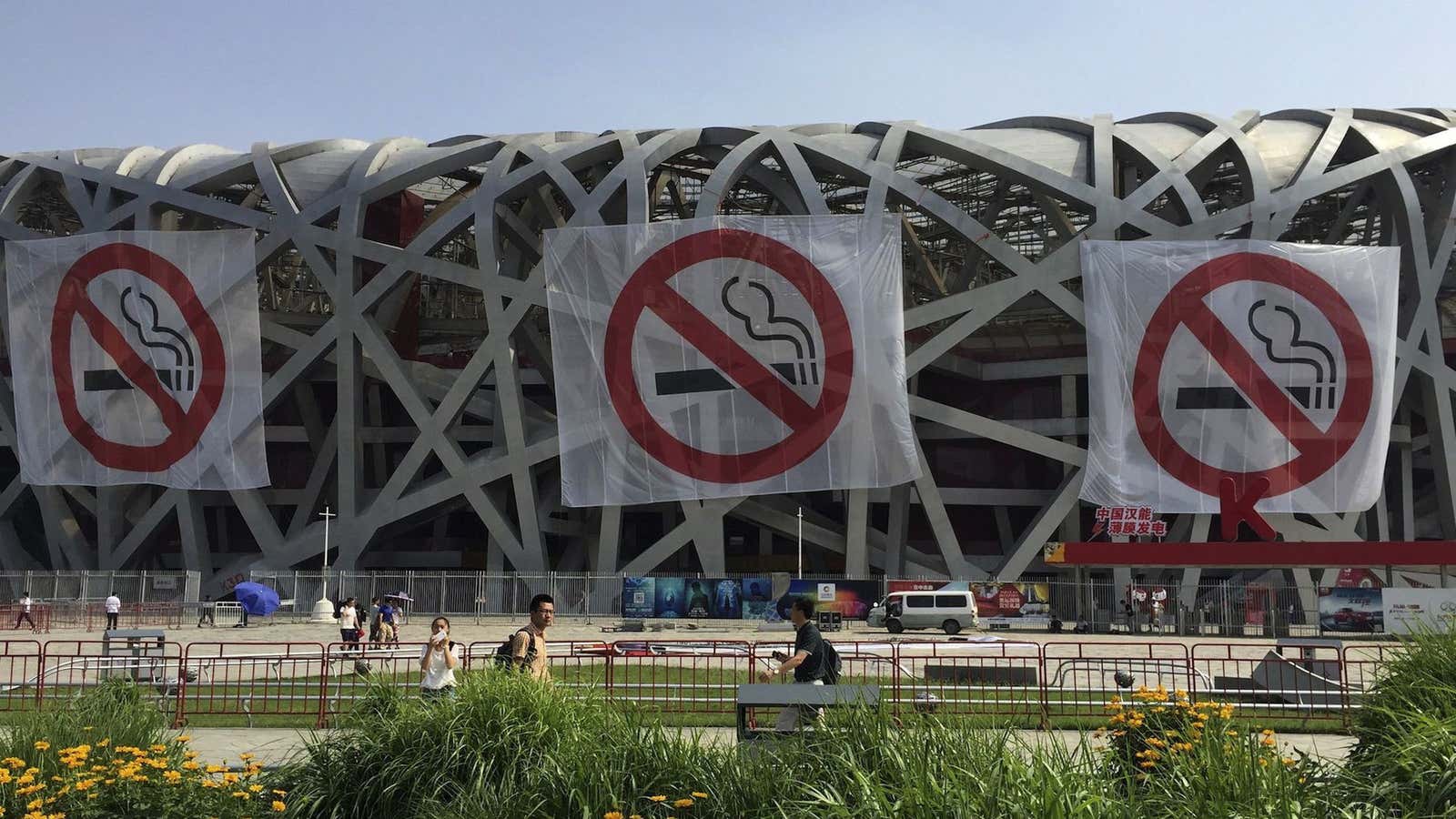Last week, Beijing instituted a ban on smoking in all public places, a huge change for a city of four million smokers who commonly light up everywhere from restaurants and offices to trains and hospitals.
Chinese health officials, who have failed to enforce other smoking bans before, are determined to make this one stick by fining businesses and individual offenders as much as 10,000 yuan ($1,600) and 200 yuan, respectively. (Officials are hoping to help reduce air pollution and lower China’s sky-high smoking rates.) Teams are patrolling the city for offenders, and anyone found to break the law more than three times will be publicly named and shamed on a special government website.
So far the results have been mixed, with some Beijingers furtively smoking in street corners with their heads covered.

Others are blatantly ignoring the ban. Spectators of a soccer match in the Beijing Worker’s Stadium on June 1 proceeded to smoke throughout the game, despite pleas by announcers and a slew of No Smoking signs around the stadium. One observer wrote, posting a photo of the scene on Weibo, “The Workers’ Stadium is one big chimney. The smoking ban is a joke.”

Some people are getting caught. A hotpot restaurant was fined 2,000 yuan on June 1 after inspectors found two cigarette butts in the men’s bathroom. A man who was smoking on the stairs of a hospital in Beijing was fined 50 yuan. Others are paying heed. Of 565 businesses inspected on Monday, 147 were found to have violated the ban. A cleaner at a children’s hospital told local media that even though he had cleaned up probably over a thousand cigarette butts on the ban’s first day, “it’s already much less.”
A government hotline for reporting cases of smoking in public appears to be getting more reports as the week goes on: on Monday, it had received 152 complaints, on Tuesday, 208, and on Wednesday 217.
Not everyone welcomes the ban. One blogger criticized China’s focus on smokers rather than the state-run tobacco industry, comparing it to the government’s often misplaced focus on curbing air pollution—for example, a ban on outdoor barbecues but not on the factories that emit the most air pollution. One blogger wrote (registration required), “They won’t regulate the chimney stacks but will ban barbecue stands; they don’t stop the cigarette factories, but go after the smokers.”
